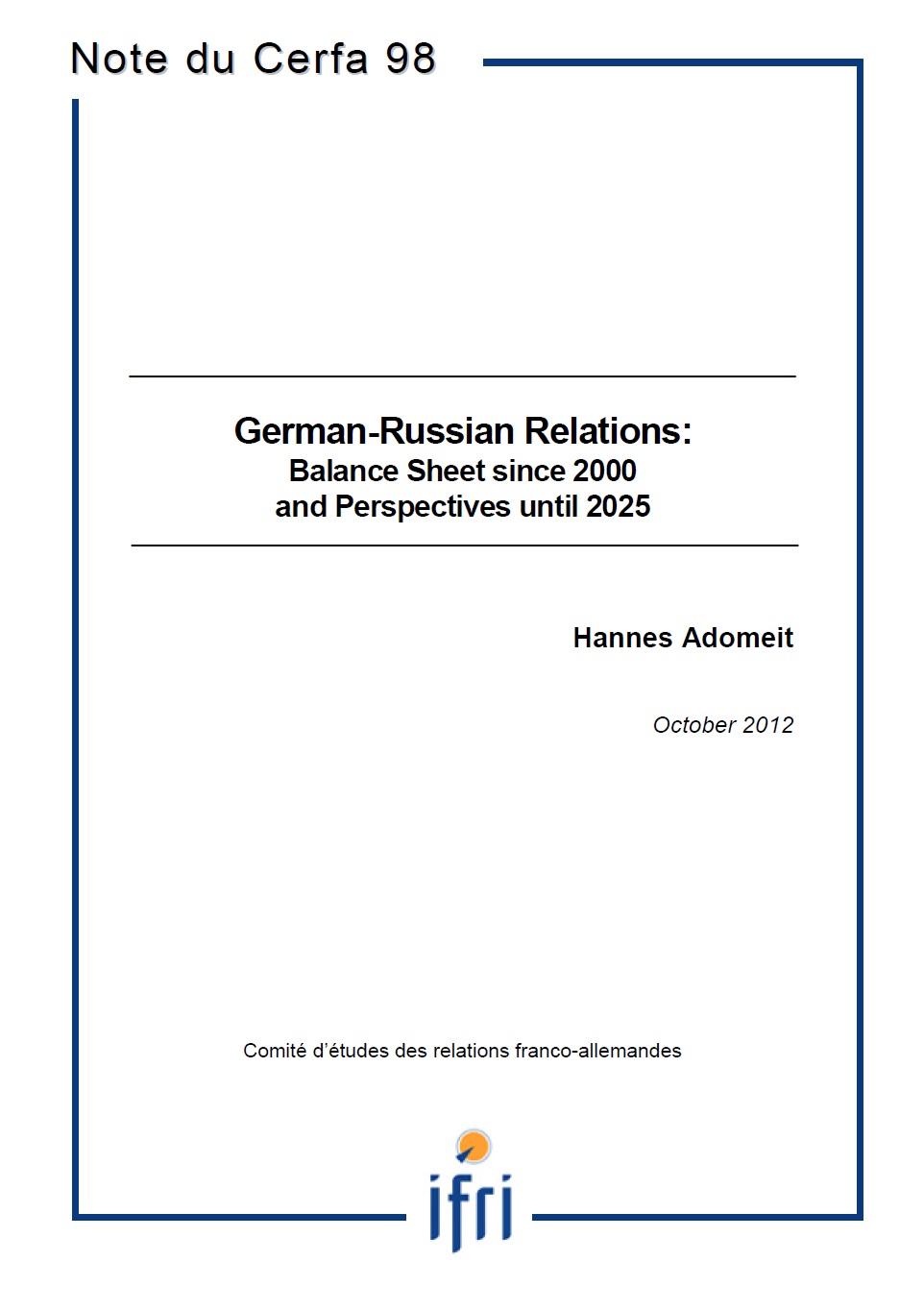German-Russian Relations: Balance Sheet since 2000 and Perspectives until 2025

The relationship between Germany and Russia, according to official portrayals in Berlin, is one of ‘strategic partnership’ supplemented by ‘modernisation partnership’. The closeness and at times demonstrative cordiality of the relations have given rise to suspicion about Germany being an advocate of Russian interests in Europe for the benefit of its economy but at the expense of Europe’s trans-Atlantic links.
In particular, concerns have been expressed that Berlin was neglecting the interests of the smaller Eastern and East-Central European states, including those of the Baltic countries. Germany’s Russia policies have also been criticised on the grounds that Berlin had ignored the more authoritarian direction Russian domestic politics and the more assertive stance the country has adopted in foreign policy under Putin, placing narrow German economic interests first and rating European values second. However, such perceptions are to some extent at least outdated. The ‘special relationship’ is no longer so special. Disappointment and frustration have increasingly affected the relations. With Putin back in office as president and with his foreign policy resuming its assertive Great Power character, disaffection, alienation and competition rather than amicable partnership are likely to characterize future relations.
Hannes Adomeit is currently teaching at the European Interdisciplinary Studies Department of Natolin (Warsaw). Until December 2007 he was Senior Research Associate at the Stiftung Wissenschaft und Politik (SWP) in Berlin, in charge of Russian Affairs. He was also Professor for International Politics and Director of the Program on Russia and East-Central Europe at the Fletcher School of Law and Diplomacy in Boston and Fellow at the Harvard Russian Research Center.

Available in:
Regions and themes
ISBN / ISSN
Share
Download the full analysis
This page contains only a summary of our work. If you would like to have access to all the information from our research on the subject, you can download the full version in PDF format.
German-Russian Relations: Balance Sheet since 2000 and Perspectives until 2025
Related centers and programs
Discover our other research centers and programsFind out more
Discover all our analysesMerz’ European Policy-making: The End of the ‘German Vote’?
Friedrich Merz’s European ambition is to turn Germany, long seen as hesitant into a leading actor within the European Union (EU). To that end, he has pledged to end the “German vote,” a phenomenon that epitomizes the paradox of a country both indispensable and frequently absent from European decision-making.

Securing critical raw material (CRM) value chains – a prerequisite for Europe’s technological resilience
At the heart of economic security, technological resilience is a backbone of the European Union’s (EU) competitiveness. The EU’s energy and digital transitions depend on critical raw materials (CRM).

Reconciling competitiveness and demographic change: a Franco-German imperative
France and Germany are facing parallel demographic shifts that could reshape the future of their economies and their social models. These shifts reflect broader European patterns but are magnified by the central role both nations play in EU governance and competitiveness.
Taking the Pulse: Does France's Political Crisis Weaken Europe's Geopolitical Hand?
While the EU tries to navigate a myriad international challenges, France is experiencing historic political disarray. What impact will instability in Paris have on Europe's geostrategic capacity?









